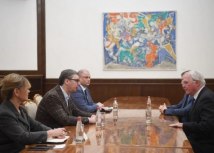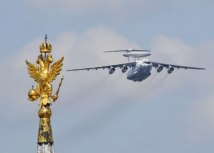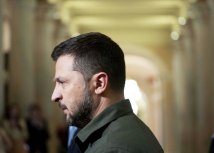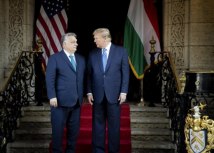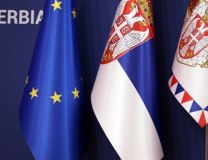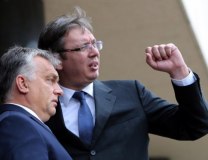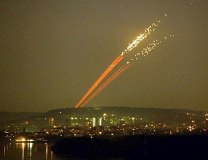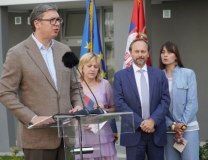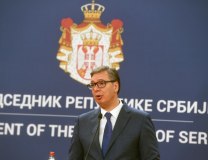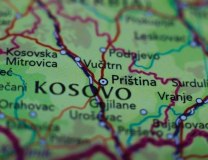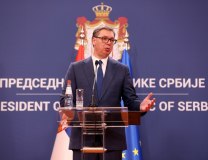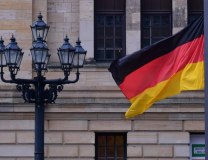NATO Sends a Clear Message to Belgrade
NATO sent a clear message to Belgrade that its strategic goal is to encompass the entire region under its flag, according to the media.
Source: RT.rs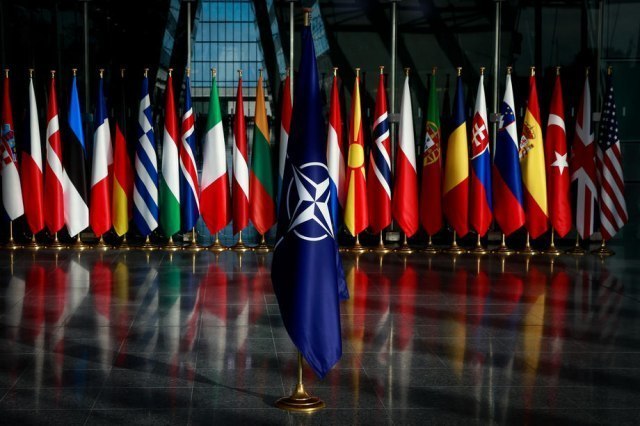
The United States, Turkey, the United Kingdom, and Germany are using significant armament of Pristina to use Kosovo Albanians as a tool for NATO to discipline Belgrade. The emergence of the Kosovo army also points to potential instability in the region, according to Srđan Graovac, an analyst at the Center for Social Stability.
Additionally, as he mentions, when discussing the arming of Kosovo Albanians, specifically the equipping of the so-called Kosovo army, we must focus on the political interests of the states involved in this illegal process. The fact that Kosovo, according to international law, cannot form an army speaks of clear international legal violence.
"Countries of the Western Collective, primarily the US and the UK, are arming Pristina to exert additional pressure on Belgrade. Knowing that all countries around the southern Serbian province are NATO members and that NATO forces are stationed in Kosovo, it becomes clear against whom this potential weaponry should be directed. In this way, NATO sends a clear message to Belgrade that its strategic goal is to encompass the entire region under its flag, and as long as Serbia does not stand under that banner, it will be treated as a potential threat, while Kosovo Albanians will be nothing more than a tool of NATO to discipline Belgrade," Graovac emphasized to "Politika."
He added that Turkey's position should not be overlooked, as it plays perhaps the most significant role in the arming of Kosovo Albanians. Considering the value and quantity of weapons delivered to Pristina, it's evident that Ankara is counting on a partnership with the Albanian factor in the Balkans.
"It's no secret that Turkey pursues a neo-Ottoman policy and clearly intends to include the Balkans in its sphere of dominant influence. The Muslim factor, whether it's Bosnians or Albanians, represents a crucial support for this Turkish expansion," Graovac noted, adding that this development inevitably leads the whole region toward conflicts and instability.
Potential instability is also mentioned by military commentator Vlade Radulović, who states that fundamentally, it's about the transformation process of the Kosovo Security Force (KSF) into the Kosovo Army, and the second phase of that process is currently underway - specific weapon procurement along with training of officer and non-commissioned officer personnel.
"Could they pose a problem in a potential conflict? Certainly, they could, even though Resolution 1244 prohibits them from having an army. The Albanian factor in the Balkans could be problematic to the extent that there is talk in certain circles of a potential 'Third Balkan War,' where regional countries would unite against the Albanian factor," Radulović believes.
Milovan Drecun, the President of the Parliamentary Committee for Kosovo and Metohija, stated that Serbia needs to raise the alarm due to the intense arming of the future Kosovo army supported by the West. He also emphasized that the 'Greater Albania' project cannot be realized without the support of Western countries that are doing nothing to prevent it.
"The West is attempting to politically marginalize and discredit the idea of 'Greater Albania,' but at the same time, it provides full support for the creation of such a formation. Look at what's happening in Kosovo and Metohija, where Kurti, with Western support, is fully militarizing Albanian society. These are preparations for a serious conflict and militarization, as they're creating mobile teams with both civilian and military experts who will go around Kosovo and Metohija, train young people, and raise awareness to defend the 'land' (Kosovo) and become part of the KSF," Drecun concluded for "Politika," as reported by Russia Today Balkans.
